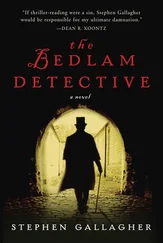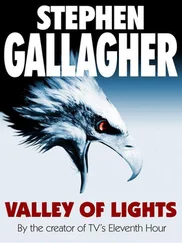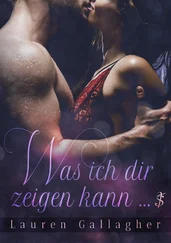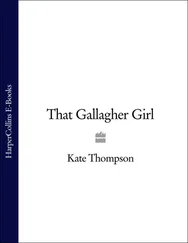More and more, our platoon sergeant had been finding reasons to stay inside the wire. Though it was hard for me to blame him — he was on his fourth tour to the desert, and only a year from retirement — it hadn’t gone unnoticed by the others. And soldiers could be resentful souls.
Whatever, I thought. I’ve been picking up the slack.
• • •
A couple of hours later, thirty young men in body armor and helmets stood in the foyer of the first floor, an open, sunny octagon covered in red-and-white ceramic tiles. We all wore the lightning bolt patch of the Twenty-Fifth Infantry on our shoulders and had CamelBaks filled with clean, cold water strapped to us.
A fresco covered the wall leading down the stairway into the foyer, depicting ten smiling Iraqi children holding up their national flag. Behind the children stood an old man with a bushy black beard wearing a turban and a white dishdasha and a stoic-looking woman dressed in a dark gray burqa. The artist had given her a considerable chest. Both adults’ hands rested on the shoulders of the children. The soldiers called the man Pedo bin Laden. She was the Mother Hajj.
After my patrol brief, I asked for questions. A stubby arm shot into the air from the rear of the group.
“Yes, Hog,” I said, raising an eyebrow, my voice carrying a blunted inflection. The others laughed. We’d played this game before.
“Which hajji bodega we hittin’ up?” he asked.
“We’ll be in the market blocks,” I said. I waved him up and handed over the town map. “You tell me.”
“Hmm,” he said. A native of Arkansas who’d enlisted at seventeen, Hog had a face that always looked like it was pressed against a windowpane, especially when he smiled. “Shi’a, mainly. Poor ones, too. Best bet is the old barber, his wives make crazy good dumplings. And might run into the Barbie Kid there — Boom Boom drinks.”
“Drink one of those, you’re begging for a piss test.” I waited for the snickering to fade before continuing. “We’ll be dismounted the whole mission — no reason to waste fuel on this. Should be back in five hours for Call of Duty .” More snickering. “Anything else?”
“What if we find the enemy?” one of the new joes asked. Most of the platoon originals laughed contemptuously, causing him to blush. I felt bad for him. It’d taken some stones to ask the question.
“Cry havoc,” I said. “And let slip the Hogs of war.”
None of the men laughed. Too much, I thought, rubbing my bare chin under my helmet strap. Too much.
We stepped into the spring morning. The young day was already overcooked and smelled of sand and canal water. “Lock and load, Hotspur,” I said, using our platoon nickname, swinging around the rifle slung over my shoulder. Technically, the M4 wasn’t a rifle but a carbine, though only the country boys insisted on that detail. We each pulled out a magazine from the vests strapped to the front of our body armor. Every magazine was filled with thirty rounds of ammunition, weighing about a pound total. We slid the magazine into the rifle’s well and smacked the bottom to make sure it stayed put. We pulled our rifle’s charging handle, drawing the bolt back and then releasing it to grab the top round and push it into the barrel, the black magic of the gun slamming forward.
“Gets me hard every time,” Sergeant Dominguez said, earning echoes of agreement. Five and a half feet of applied force, Dominguez had held sway in the platoon much longer than he’d held his rank. I’d learned early on to go to him when I needed something done that couldn’t or shouldn’t involve officers.
We moved toward the front gate, our staggered file stretching out like a slinky. Dominguez took the lead, as usual, while Snoop and I settled into the middle of the patrol, the terp carrying a black plastic rifle made to resemble the real thing. He claimed it made him less of a target, but we knew he carried it to try to impress any available Iraqi ladies. A pair of attack birds on their way to Baghdad flew over us, their rotors churning in mechanized refrain. We walked north on the sides of the road in silence.
A bronze fog hung over the town of Ashuriyah. It obscured our vision, though the occasional minaret crown emerged above the haze. I took off my clear lenses and wiped away the dust before deciding to hell with it and slipped them into a cargo pocket. While the fog shielded us from the sun’s worst and kept the air relatively cool, I’d already sweated through my clothes by the time we reached the market blocks. My body ached in all the normal places from the medieval bulk of the armor: the blister spots on my heels, the knotted center of my back, the right collarbone that’d been turned sideways years before during intramurals. I pushed these bitchy suburban grievances away, tugged at my junk, and thanked Hog again for teaching me the importance of freeballing.
“No problem,” he said. “But what do they teach at officer school if they don’t teach that?”
We stopped short of the market and turned onto a dusty back street, walking by a lonely cypress tree. Small sandstone houses resembling honeycomb cells lined the sides of the road. A donkey cart filled with concrete blocks ambled by, the animal and boy driving it sunk in discomfort. On their heels came a rush of children clamoring for our attention and clawing at our pockets.
“Mistah, gimme chocolata!” they said. “Gimme football! Gimme, gimme!”
“You gimme chocolata!” Hog said, picking up one of the kids, twirling him around.
“Punks should be in school,” Doc Cork said, reaching for a cigarette. For some reason, the other soldiers took great pride in the fact that our medic smoked. The only son of Filipino immigrants, he was a peddler of light, and pills, in a bleak world.
I turned to a child with doubting eyes, ruffled his hair, and pointed to him. “Ali baba,” I said. The group of kids around him laughed and chanted, “Ali baba! Ali baba!” while the victim of my slander protested. No one liked being called a villain. I put my hands out and let the kids play with the hard plastic that cased the knuckles of my gloves.
Some of the guys were debating whether to provide the kids dipping tobacco and telling them it was chocolate, so I gave Dominguez the hand signal to keep the patrol moving.
“This is good, yo,” Snoop said, waving around his dummy rifle like a flag. “Kids keep snipers away. They won’t shoot with kids here, unless they are fuckups. People get angry about dead kids.”
Near the hajji bodega, a group of teens were playing foosball in a plot of muddy weeds and poppies. The Barbie Kid was there, too, wheeling around a cooler and selling Boom Booms and cigarettes to occupiers and occupied alike. A gust of wind carried the faint scent of shit so pervasive in Ashuriyah. Sewer ditches and cesspools were still far more prevalent than indoor plumbing in this part of the Cradle of Civilization.
Snoop pointed to the table and asked if I wanted to play.
“Sure,” I said. “Anyone got someplace to be?”
Most of the soldiers laughed, though I spotted the new staff sergeant, Chambers, glaring my way. He leaned against a telephone pole with wires hanging from it like spaghetti, his helmet tilted forward to cover his face in a deep shadow.
“Too nice to these little fuckers,” he said, exposing a tobacco-stained overbite. There was a hard edge to his voice. This wasn’t a joke — it was criticism.
Half the patrol started studying packed dirt, while the others turned to me. I needed to say something. I was the platoon leader. He was an interloper, a fucking new guy who wasn’t supposed to be doing anything but watching and learning. So I shrugged and said, “It’s not 2007 anymore. Things have changed. We’re withdrawing soon.”
Читать дальше




![Ally Carter - [Gallagher Girls 02 ] - Cross My Heart & Hope To Spy](/books/262178/ally-carter-gallagher-girls-02-thumb.webp)
![Ally Carter - [Gallagher Girls 01] I'd Tell You I Love You But Then I'd Have to Kill You](/books/262179/ally-carter-gallagher-girls-01-i-d-tell-you-i-lo-thumb.webp)






